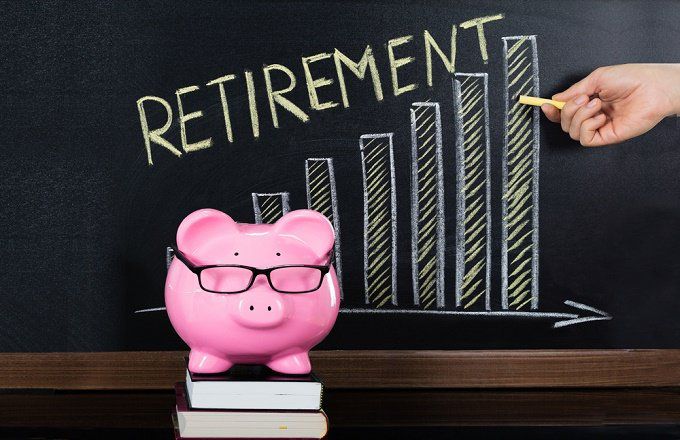Want to hang on to your gold in your golden years? Then keep saving even when you’ve stopped earning. Here’s how.
Take the same approach to money management you did before you kissed the 9-to-5 grind goodbye. Careful planning, money management and saving will go a long way toward making your retirement years relaxing — not taxing. Here are some tips for making the most of your money after retirement:
1. Draft a Financial Plan
There’s a great fear of running out of money. It’s a paralyzing fear most retirees have. Creating a financial game plan will help you manage your fears, as well as your money. Determine where your money will be coming from — investments, pensions, Social Security or savings.
Figure out what you need coming in each year to live the way you’d like and allocate your money accordingly. Typical strategies are to keep a certain percentage of your savings in cash, a certain amount in bonds, and the rest in stocks (long-term investments.) Examine what you would like to do in retirement. In the early years, be a little on the cautious side to avoid completely overspending, but don’t deny yourself. Review your finances at least annually. See where you are and what you want to do. Spend in such a way that you are enjoying your life. Keep a little something tucked away, “but you never come back, so you might as well enjoy it.”
When it comes to retirement savings accounts, taking out 4% a year is a rule of thumb. Spending 4% minimizes the risk of running out of money. But be flexible enough to look at your special circumstances and goals. Remember, if you deplete your investments early on — even if you work part-time and continue investing — it will be tougher to make up the difference.
It’s best to sit down with a financial planner who specializes in retirement distribution analysis to help you create a plan. Make sure your expert makes money only from offering advice, not from commissions on products sold to you or through transaction fees every time something is bought or sold. At ElderAdo, we are fee-only fiduciaries which means we give advice in our client’s best interest and only earn money through managing our client’s assets.
2. Rent Before You Buy
Looking to try out a new lifestyle, such as living out of an RV or moving to a fishing cabin in the north woods? Try it before you buy it. Sure, you enjoyed your vacation in the RV, but do you really want to live in it? Instead, negotiate to try it out for six months, and see how it wears on you. Then you’re not sinking your hard-earned savings into a new lifestyle that you may not enjoy.
3. Eliminate Extra Fees and Charges
This is a good time to look over the fine print on your finances. Is your bank charging outrageous service fees? Shop other banks or credit unions that are willing to offer you the same options for free. Do you pay for services that you no longer use? If so, maybe it’s time to cancel that subscription or membership.
4. Work Part-time
If you enjoy your job, or the job you’re considering, this is a great move. Any money you’re earning isn’t coming out of your savings, which means you’re actually saving cash for later. However, run the numbers before you go back to work. If you don’t do your own taxes every year, this might be a good time to hire a pro to tally it up for you.
If you start collecting Social Security between 62 and your “full retirement age” — a benchmark set by the Social Security Administration that varies with your birth year — watch your income. If your job pays you too much, you could lose a sizable chunk of your Social Security benefits. Either keep your earnings below the threshold or defer Social Security until later in retirement, when you cut back on your earned income.
Also don’t forget to weigh the intangibles. If work is drudgery, that’s one thing, but if you crave interaction with other people and want to keep your professional skills sharp, it may be worth a little extra in taxes.
5. Claim That Senior Discount
Use every discount you can. We have a client who took this technique a step further. Newly retired, the man went to the independent businesses he’d patronized for decades, announced he was now retired and asked the owners what kind of a discount deal they could offer. Retirees should realize that they are a valuable commodity, especially for independent businesses. They tend to be extremely loyal, have disposable income, and visit frequently. In return for regular patronage, some gas stations, diners, dry cleaners and the like are willing to offer them perks to keep their business.
6. Be On the Lookout For Fraud
Unfortunately, con artists target retirees and the elderly. Keep active, stay social and be wary of anything that sounds too good to be true. It probably is. Always feel free to contact our office if you have a question on if something is legit whether you receive it in the mail, email, phone call, etc.
7. Re-evaluate Your Life Insurance Needs
Typically, you buy life insurance to replace income that your family would have to do without if you or your spouse died. But if you’re not drawing income, do you still need life insurance? Sit down and crunch the numbers. If you’re working part-time, would your spouse’s lifestyle suffer if that income disappeared? Or if your Social Security or pension was reduced or eliminated? Is your estate large enough that your family would be left with a tax burden when you died? Would your spouse or family have trouble coming up with the money to cover funeral expenses? If so, you may still need a policy. If not, and especially if you and your spouse are living off investment money that would continue coming in, life insurance may be an extra expense you no longer need.
8. Keep Putting Money in Your Retirement Plan
Working part-time in your golden years? Sock some of your paycheck into a 401(k) or IRA. Because employers want to attract retirees more and more employers are not requiring you to work full-time to be eligible for 401(k) benefits. Not only are you saving extra money for later on, but you’re also reducing your taxable income.
9. Plan tax-efficient investing
Look for investments that will give you steady growth with a minimum of taxable income. For example, “because of the tax implications, it’s often better to have your bonds and dividend paying stocks inside your retirement accounts. Never make assumptions about the tax consequences of your investments; read the fine print. Don’t just assume that all mutual funds are tax efficient. Our advisors can help answer your questions about tax-efficient investing as we specialize in this.
10. Evaluate Long-term Care Insurance
Even the experts are divided on this one. Some claim that in an age of unlimited medical advances and limited time and funds, it’s a necessity. Others contend that retirees are better off banking the money they’d spend in premiums and making their own plans. Unfortunately, most people do nothing. Please do something. Force yourself to weigh the options. Does it seem likely, given your medical and family history, that you might need long-term care? Do you have family who could manage to take you in and take care of you if anything happened? (And before you automatically say “yes,” be sure to talk it over with them.) Do some checking, and find out what a policy would cost and what it would cover. Then you can take action and make a choice that’s comfortable for you.






